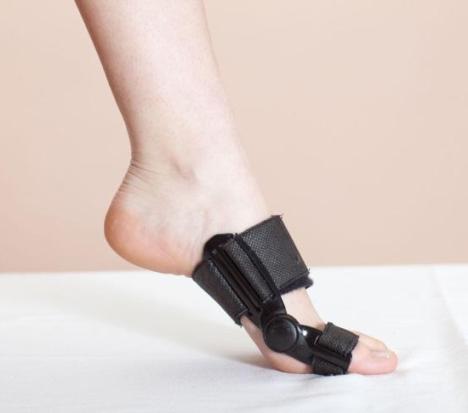5 Reasons to Treat Your Hammertoes
Some conditions are minor and often more cosmetic than a risk to your health. Hammertoes are one of those conditions that may or may not “need” treatment depending on how much they bother you, but there are options — both surgical and non-surgical — that may make treating your hammertoes worthwhile regardless.
Table of Contents
1. Relief of Pain
Discover what causes hammertoes and you might have a better idea of why they cause so much pain and discomfort — and why they inevitably will cause you pain even if they don’t currently bother you much.
Hammertoes deform the feet to the point where it’s difficult to fit them in most shoes, and when you do cram them in, the bent toes get inflamed from constant friction. Some hammertoes are bent in such a way that you irritate them every time you step on them, with or without shoes.
Hammertoes don’t naturally go away; you must step in and treat them to eliminate and prevent the pain they cause. There are both surgical and non-surgical options available; surgical options provide much faster results, but non-surgical may prove right for you if you aim to manage instead of eliminate pain.
2. Better-Looking Feet
Hammertoes resemble claws in that they’re bent upward at a joint and curl back down. They’re immediately noticeable as out of place and odd, even if they’re not currently inflamed.
Many people who suffer from hammertoes feel embarrassed showing them off in public, so you’ll never find them in sandals or barefoot at the beach. Feel more confident about wearing open-toed shoes and going barefoot by getting your deformity treated.
3. Greater Freedom to Wear Different Shoes
Many open-toed shoes may actually be out of the question for you, even if you aren’t that self-conscious about your feet. Many shoes, not just open-toed, irritate hammertoes, so you’re stuck with the most comfortable and boring shoes available.
While shoes like high heels are bad for feet even without hammertoes — and high heels may actually cause hammertoes — you could certainly wear them for an evening out on the town if you could comfortably fit your feet in them to begin with. Until you treat your hammertoes, your feet won’t fit.
4. Decreased Risk of Corns and Calluses
Due to the bent angle of a hammertoe, the joint or tip of the toe rubs across the sole and the top of the shoe in unnatural, repetitive ways. This leads to inflammation and the development of corns and calluses, which are your skin’s reaction to repetitive irritation.
However, the larger they grow, the more pain they can cause, especially on a hammertoe. Regardless, you may become self-conscious about these growths on your feet.
Treat your hammertoes, and the skin will stop rubbing awkwardly against your shoes, which decreases your risk of secondary side effects.
5. Simple, Outpatient Treatment
You might be avoiding doing something about your hammertoes because you don’t feel you can take enough time off of work to deal with it, or you’re scared that it’s a big procedure.
However, there are many ways to treat hammertoes under a professional’s guidance, and even the surgical options are typically outpatient. Non-surgical treatment includes:
- Medications
- Toe stretches and exercises
- Better-fitting and more supportive shoes
- Splinting and padding
If your podiatrist recommends surgery, she may consider 2 methods: Pin Fixation or Implant Fixation
Arthrodesis with Temporary Steel Pin (Pin Fixation)
In this technique, the podiatrist surgically removes the damaged joint surfaces and straightens the toe. A temporary steel pin (also known as a Kirschner wire or K-wire) is inserted through the toe to hold the bones in the correct position while they heal and fuse together.
The steel pin extends outside the toe and remains in place for 4 to 6 weeks. During this period, patients must avoid getting the area wet and keep weight off the toe to ensure proper healing.
After the bones have fused, the pin is removed in a simple procedure that typically doesn’t require anesthesia.
Arthrodesis with Permanent Implant (Implant Fixation)
In this variation, instead of a temporary pin, the surgeon uses a permanent implant, such as a small screw or bioabsorbable device, to hold the bones together. These implants eliminate the need for later removal.
Recovery is generally more convenient. Patients can bathe and resume most normal activities, such as walking, within a few days. Since there’s no external pin, the risk of accidental displacement or infection at the pin site is eliminated.
Conclusion
Over seven million American adults have experienced hammertoes in their lifetimes. Hammertoes are uncomfortable, even painful, and make most people feel self-conscious.
There’s no need to suffer from hammertoes when surgery is simple, and you may not even require surgery to improve them. Arrange a consultation today to go over your treatment options.
